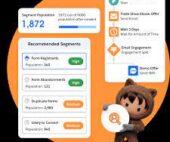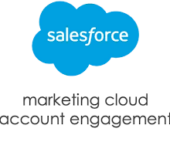Cloud Computing in Healthcare: Ensuring HIPAA Compliance Amid Growing Adoption
As healthcare organizations increasingly turn to cloud computing for scalable and accessible IT services, ensuring HIPAA compliance remains a top priority. The global healthcare cloud computing market is projected to grow from $53.8 billion in 2024 to $120.6 billion by 2029, according to a MarketsandMarkets report. A 2023 Forrester report also highlighted that healthcare organizations are spending an average of .5 million annually on cloud services, with public cloud adoption on the rise.
While cloud computing offers benefits like enhanced data mobility and cost efficiency, maintaining a HIPAA-compliant relationship with cloud service providers (CSPs) requires careful attention to regulations, establishing business associate agreements (BAAs), and proactively addressing cloud security risks.
Understanding HIPAA’s Role in Cloud Computing
The National Institute of Standards and Technology (NIST) defines cloud computing as a model that provides on-demand access to shared computing resources. Based on this framework, the U.S. Department of Health and Human Services (HHS) Office for Civil Rights (OCR) has issued guidance on how HIPAA’s Security, Privacy, and Breach Notification Rules apply to cloud computing.
Under the HIPAA Security Rule, CSPs classified as business associates must adhere to specific standards for safeguarding protected health information (PHI). This includes mitigating the risks of unauthorized access to administrative tools and implementing internal controls to restrict access to critical operations like storage and memory.
HIPAA’s Privacy Rule further restricts the use or disclosure of PHI by CSPs, even in cases where they offer “no-view services.” CSPs cannot block a covered entity’s access to PHI, even in the event of a payment dispute. Additionally, the Breach Notification Rule requires business associates, including CSPs, to promptly report any breach of unsecured PHI.
Healthcare organizations engaging with CSPs should consult legal counsel and follow standard procedures for establishing HIPAA-compliant vendor relationships.
The Importance of Business Associate Agreements (BAAs)
A BAA is essential for ensuring that a CSP is contractually bound to comply with HIPAA. OCR emphasizes that when a covered entity engages a CSP to create, receive, or transmit electronic PHI (ePHI), the CSP becomes a business associate under HIPAA. Even if the CSP cannot access encrypted PHI, it is still classified as a business associate due to its involvement in storing and processing PHI.
In 2016, the absence of a BAA led to a .7 million settlement between Oregon Health & Science University and OCR after the university stored the PHI of over 3,000 individuals on a cloud server without the required agreement.
BAAs play a crucial role in defining the permitted uses of PHI and ensure that both the healthcare organization and CSP understand their responsibilities under HIPAA. They also outline protocols for breach notifications and security measures, ensuring both parties are aligned on handling potential security incidents.
Key Cloud Security Considerations
Despite the protections of a BAA, there are inherent risks in partnering with any new vendor. Staying informed on cloud security threats is vital for mitigating potential risks proactively.
In a 2024 report, the Cloud Security Alliance (CSA) identified misconfiguration, inadequate change control, and identity management as the top threats to cloud computing. The report also pointed to the rising sophistication of cyberattacks, supply chain risks, and the proliferation of ransomware-as-a-service as growing concerns.
By understanding these risks and establishing clear security policies with CSPs, healthcare organizations can better safeguard their data. Prioritizing security, establishing robust BAAs, and ensuring HIPAA compliance will allow healthcare organizations to fully leverage the advantages of cloud computing while maintaining the privacy and security of patient information.













